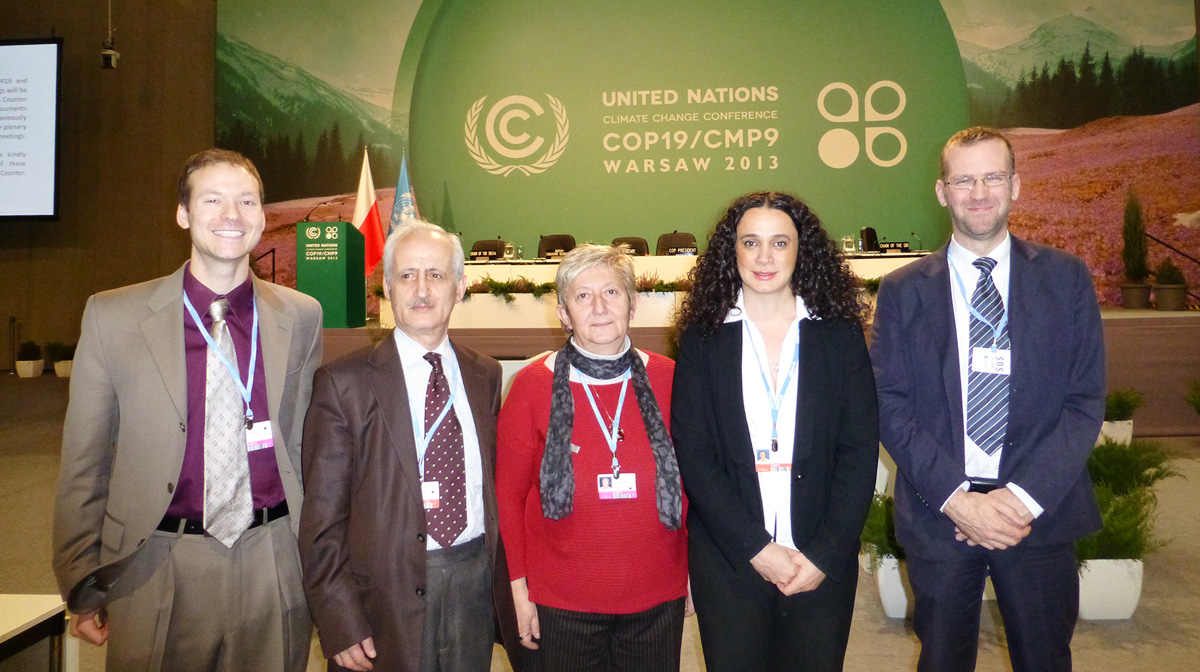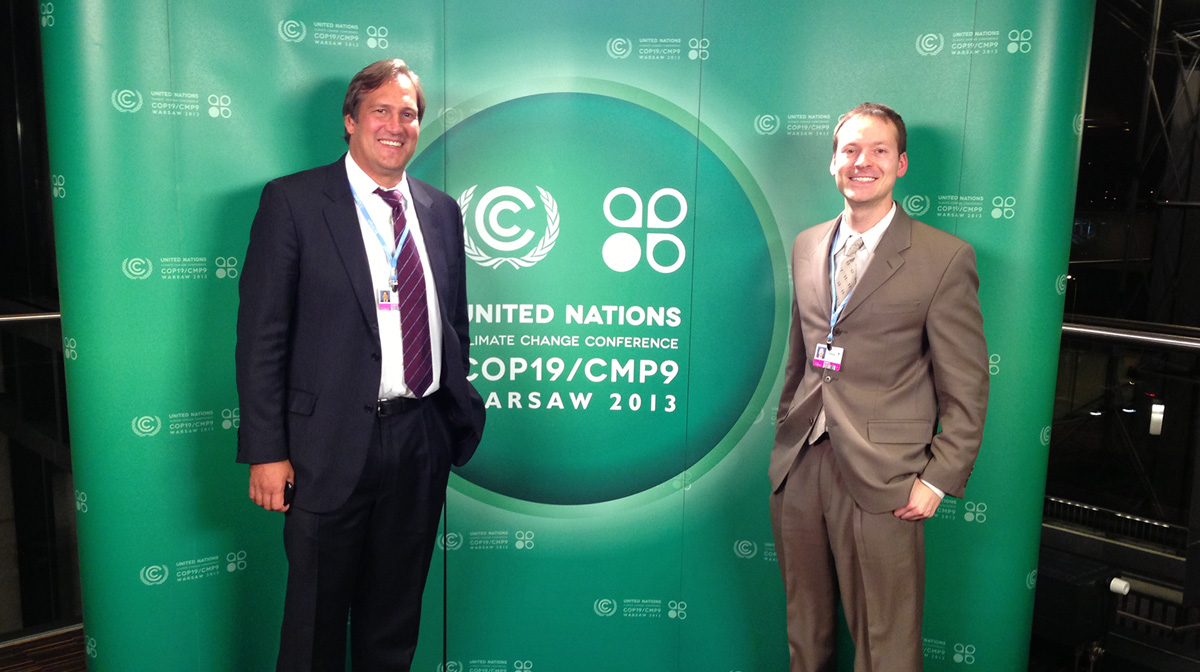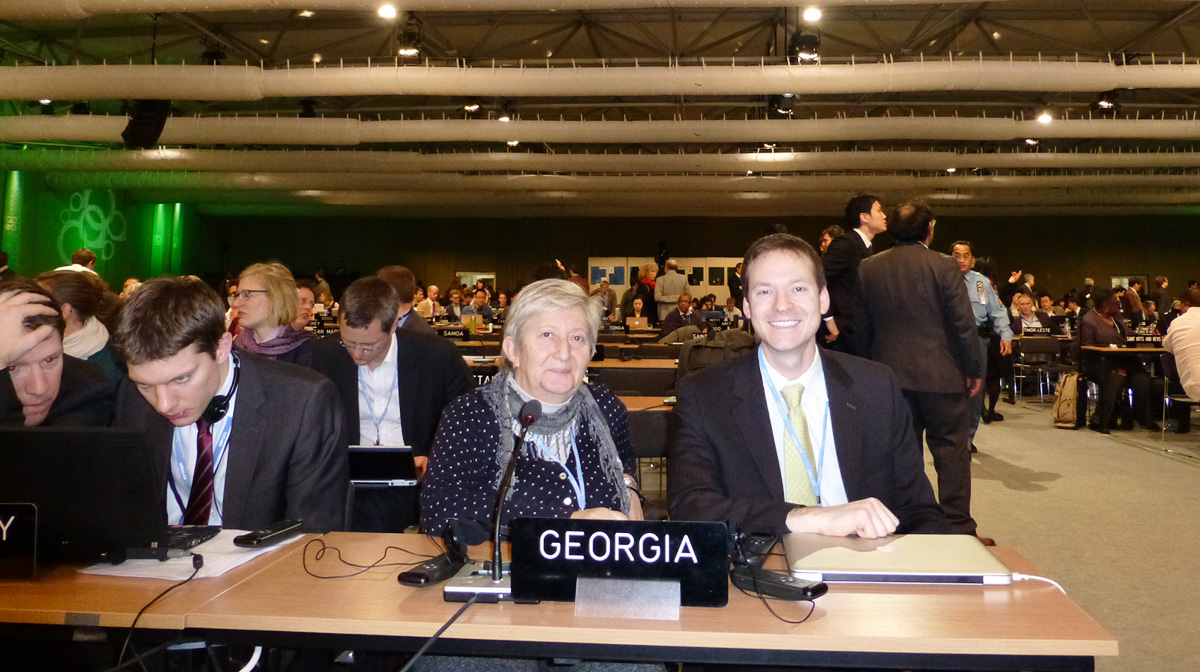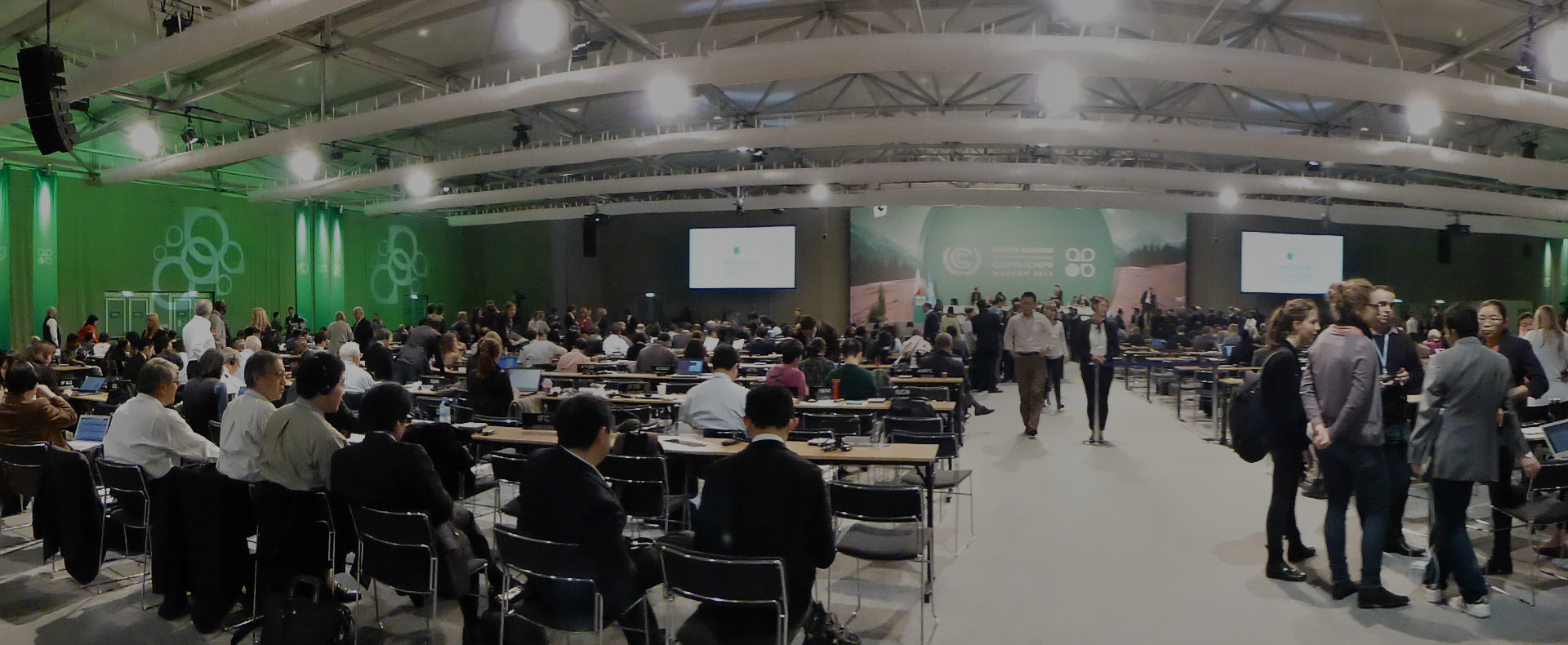Representing Georgia at UN
Climate Change Negotiations



Since high school, I viewed global climate change as the greatest threat to mankind and the planet. I had always dreamed of being a climate negotiator and solving global environmental problems. Following my passion, I decided to become an environmental lawyer and was drawn to DLA Piper, in large part, because of its global commitment to pro bono through New Perimeter. Working in private practice, however, I never really believed I would have the chance to impact global climate change negotiations.
And so I was overjoyed when Alex Sarac and the New Perimeter team invited me to represent the country of Georgia at international climate change negotiations in Warsaw, Poland. I counseled the government the year before from the United States, but this time they wanted me to work side-by-side as a member of the Georgian delegation to the 19th Conference of the Parties (COP19) to the United Nations Framework Convention on Climate Change (UNFCCC).
Anyone attending their first COP can tell you that it can be an overwhelming experience like being thrown to the wolves or experiencing trial by fire. As we entered the grandiose National Stadium, the host venue for COP19, it was clear Warsaw would be no different. Negotiations were broken down into over twenty different working streams, each meeting in a separate location, focusing on a unique issue ranging from climate mitigation, adaptation, deforestation, carbon markets, to international climate governance procedures. With a delegation of only five people, it became readily apparent that Georgia, like other small developing nations, was at a distinct disadvantage and would have to pick its battles.
Fortunately, we also had a team of over ten DLA Piper attorneys back home in Europe and the United States. They briefed the delegation on climate developments prior to and during the two-week conference. This enabled us to follow issues of critical importance to Georgia without being at every meeting. I would have also been lost were it not for Alex Sarac, who spent the first few days introducing me to his wealth of contacts from years past and sorting through the maze that can be international climate change negotiations.
It was a wonderful experience working together with the Georgian delegation, particularly Grigol Lazriev (head of delegation), Marina Shvangiradze, and Ulrich Kindermann. I primarily worked alongside Marina, counseling the team and representing Georgian interests in negotiations concerning the Consultative Group of Experts (CGE) on National Communications from Non-Annex I Parties (i.e. developing countries) Such communications (and shared guidance) are vital in that they allow developing nations to demonstrate their success in monitoring, reporting, and verifying domestic measures to reduce greenhouse gas emissions in line with their obligations under the UNFCCC. In particular, we worked to obtain representation for Eastern European developing countries, such as Georgia – the only members inexplicably not eligible for representation – at the CGE.
By far the most riveting and nerve-wracking experience came as negotiations drew to a close late Saturday night/early Sunday morning. With the composition of the CGE unresolved, I nervously stepped up to the plenary at midnight announcing in front of over 500 people that unless Georgia’s concerns were addressed, we could not approve the continuation of the CGE as a working body and would effectively hold up the conference from adjourning that night. For the next several hours, Marina and I negotiated with the United States, the European Union, Saudi Arabia (on behalf of the G77), and Brazil, but were no closer to a resolution, because everything must be adopted by consensus. Finally, at 5am we negotiated a compromise providing for an observer seat on the CGE for non-represented parties and a formal decision on CGE composition at COP 20 in Lima, Peru next year. While not a victory for Georgia, we laid the groundwork for a hopeful resolution next year.
Beside the conference itself, one of my favorite memories was experiencing Georgian cuisine with Ulrich. After a long week of negotiations and reaching out to foreign climate funders, we bonded over khachapuri (a very cheesy pizza), khinkali (a delicious lamb dumpling), and a bottle of Mukuzani (red wine).
By the end of the two week conference, I developed a camaraderie with the rest of the Georgian delegation. We spent many a late night together throughout the negotiations and used our limited resources to best meet Georgia’s needs. I came to appreciate the uniqueness of Georgian culture and also some of the hardships that come with being a small developing country at home and on the larger international stage. Warsaw was an amazing learning experience for me and hopefully but a step in a long client relationship.
Assisting Georgia with Climate
Change Negotiations
